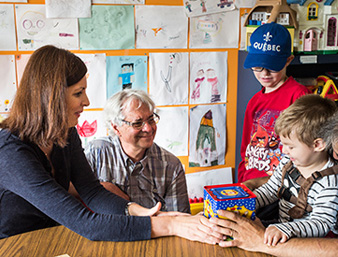
From Construction of Knowledge to Emergence of Values: An example of community social pediatrics
Martinez, Diego Mena
[about]
When countries like Canada ratified the United Nations Convention on the Rights of the Child, children’s rights’ advocates felt a new era was promised to ensure the protection of the children’s inherent dignity as human beings. Countries would strive to meet children’s needs regardless of the neighborhood in which they are born and raised. Education was casted as a fundamental right and advanced as essential for children to grow as healthy adults living a full and satisfying life.2
Schooling is only part of the answer. It cannot, by itself, achieve this noble goal. The responsibility for education must be shared between the State, the family, and the community to provide children with a broad range of experiences.
This paper presents the model of the Circle of the Child,3 an amicable alternative dispute resolution mechanism I have developed over three years, with a number of partners (including children), in two disadvantaged communities in Montréal, Canada.4 It is designed to help children and families who come into conflict with the education system. To better understand how this model really works, I will expose Susana’s case (the name is fictional, of course). Through learning, the child develops critical analytical tools that help her understand her rights and become a meaningful participant of the process. The child also gets empowered to act and feel free to find solutions that meet her needs.




